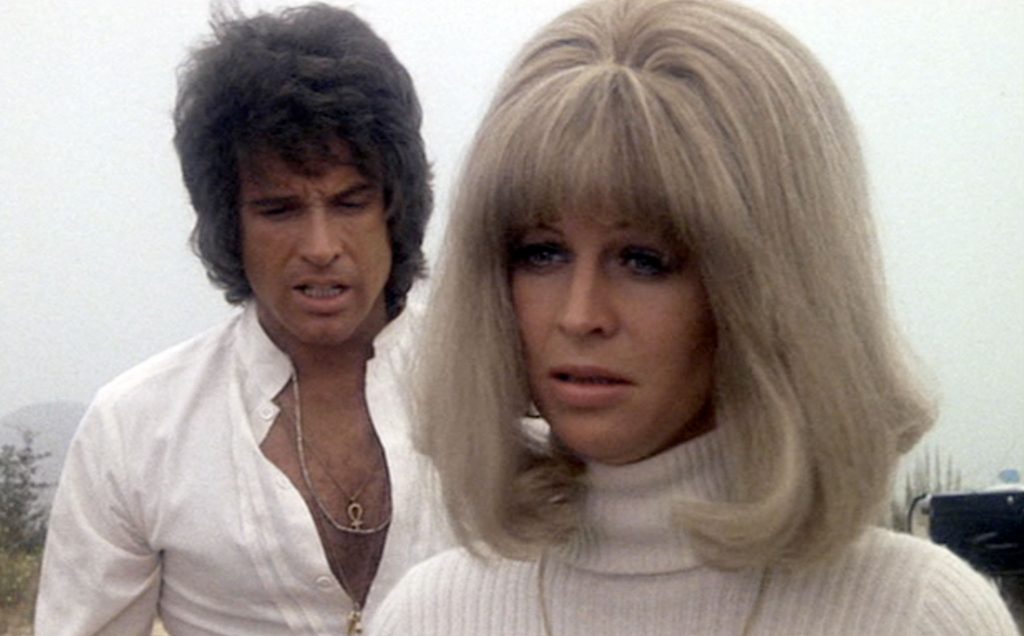
Shampoo (1975), unlike Hal Ashby’s earlier films The Last Detail (1973) and Harold and Maude (1971), lacks the presence of any literal physical death. Instead, the film focuses on a political passing and a spiritual end, both being embodied by George Roundy (Warren Beatty). Set on election night, 1968 (the night Nixon became president), Shampoo uses Roundy’s trajectory as pure allegory. When Roundy loses all the women with whom he has a meaningful relationships that night, he undergoes a spiritual death, in adherence with the expectations set by the film’s narrative and Towne’s own penchant for pessimistic character studies. Simultaneously, Roundy represents a generation’s failure to achieve “free love”, political strength, and any true escape from the established norms of American society.
The thematic diptych evident in each of Ashby’s three films of the period reflect, with intimate precision, the director’s own fears regarding the political aspirations of the late sixties youth movement. Strangely enough, it is only Shampoo that deals explicitly with the popular visual and thematic trappings associated with the sixties, at least in so far as its narrative is concerned.
Pointing out the thematic cohesion of Hal Ashby’s films makes it hard to believe that he is still one of the most under appreciated and misunderstood directors of the seventies. Because this cohesion exists only as a subtext in most of his films, mainstream audiences have a hard time recognizing Ashby’s significance.
